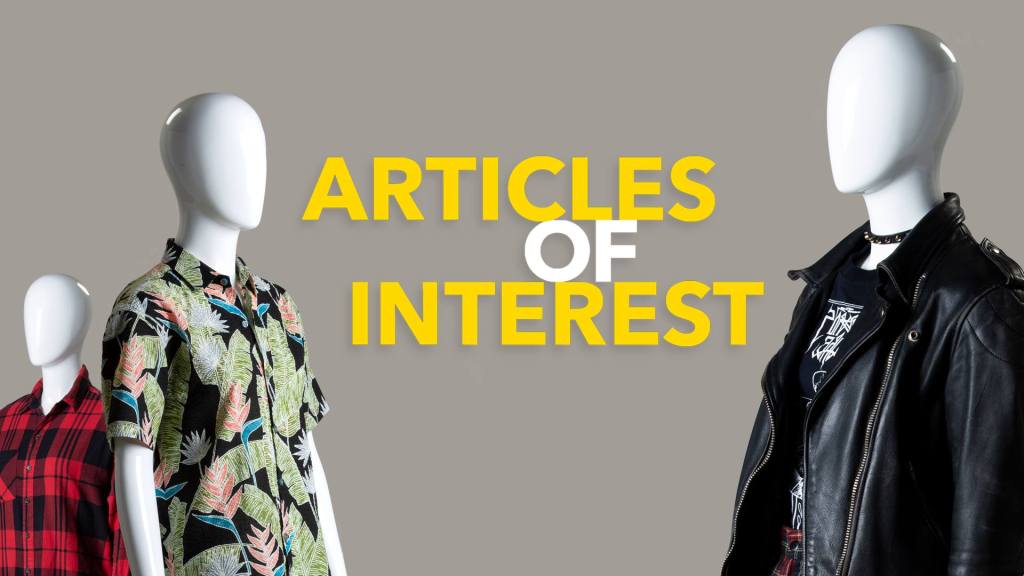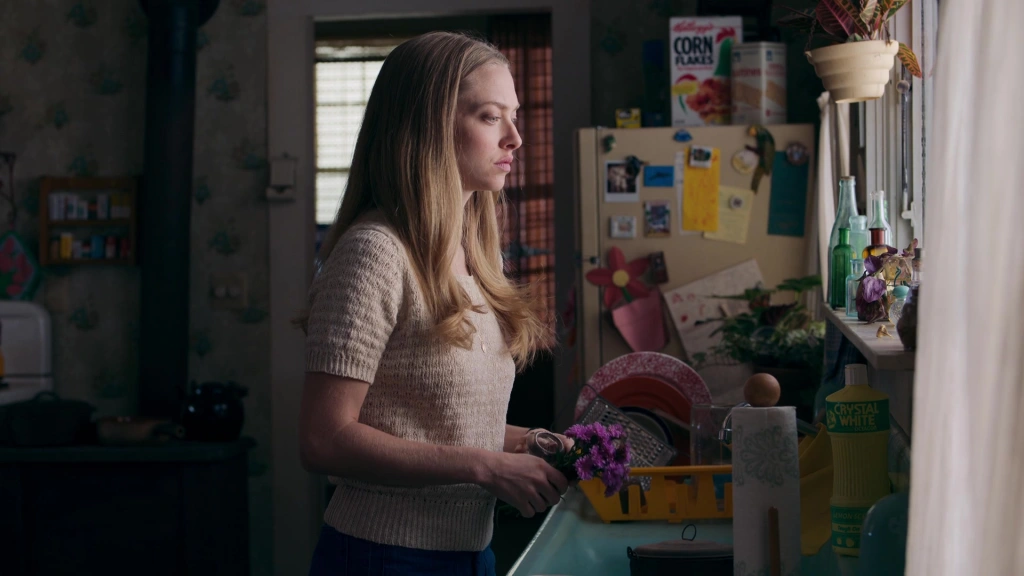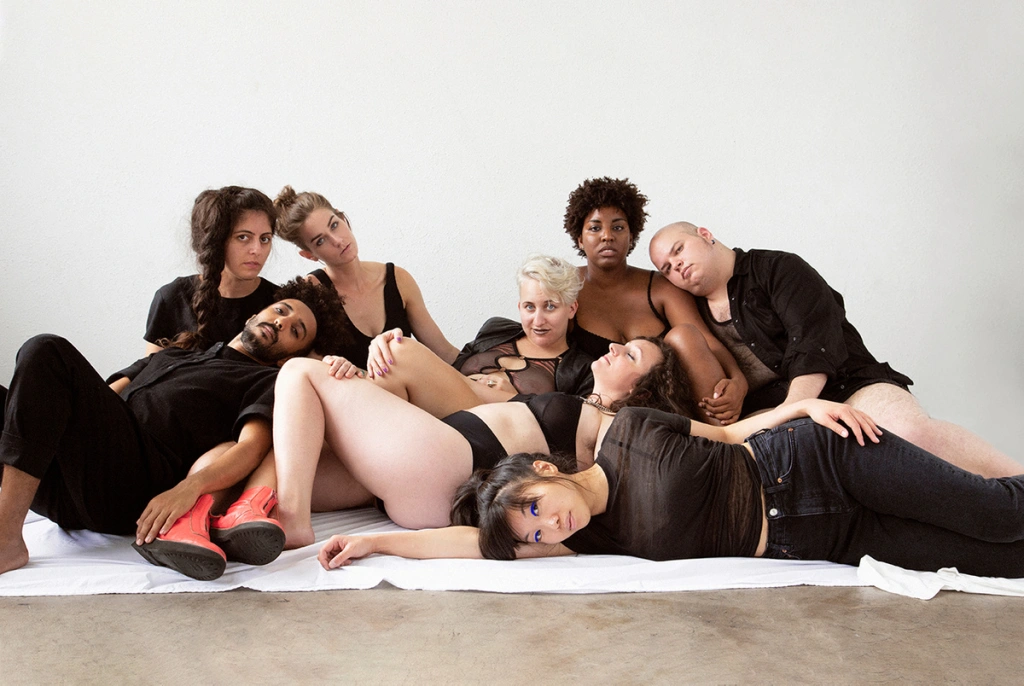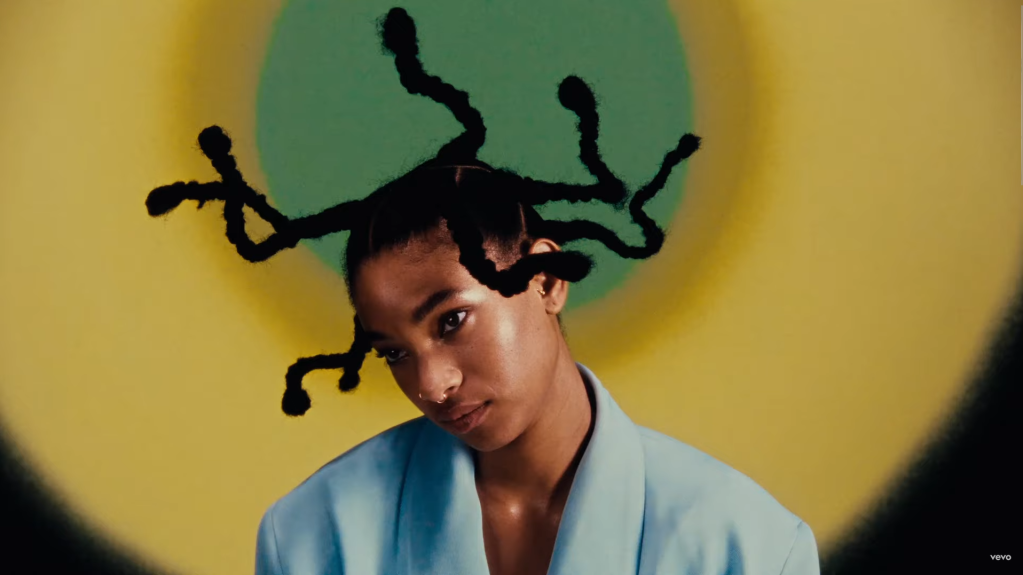Created by Tau Zaman of The Whisperforge, the new “weird west” audio fiction CARAVAN follows Samir (Sushant Adlakha), a queer man who falls into a strange canyon while camping with his best friend, Carlyle. What ensues when Samir enters the canyon is a world of demons, cowboys, banshees, ghostlike echoes of people, “unicorns,” and other strange and delightful blends of classic westerns with the supernatural.
I sat down with Tau Zaman to talk CARAVAN, worldbuilding, tweets, power structures, and so much in between.
Could you explain CARAVAN for readers?
We’re calling it is a weird west audio adventure, which is kind of a catchall for a lot of things. Basically, we were trying to convey that it’s this, you know, fantasy western setting, podcast/scripted audio drama. And when people ask, well, what is it really about? Rather than give them a plot summary, I just say, you know, I wanted to write a show about going through hell with people you love and that’s pretty much the shortest, or most concise way I can put it.

How much of your concept of genre was at play when you wrote? Was it genre first or was it, “Here’s the thing that I wrote that I love, and the genre is way to give shorthand to that?”
I would say the genre definitely did not come first because Samir has existed for at least 10 years. From there, I thought, “Okay, well what are the things that, what is the story I want to tell?
What does this character need to go through?” And very quickly, I thought, “Not mundane real life things.” So, from there, it’s very easy to land on fantasy. From there it was more as a writer, what do I really enjoy doing? When we were looking at the types of podcasts that the Whisperforge has, I felt like my writing style was maybe a little bit closer to an audiobook than an audio drama in a lot of senses. I wanted to have these lush descriptions of environments that I think are really compelling, or if I can do a poetic turn of phrase to describe a certain image, that’s really appealing to me.
I’d love for you to discuss the choice to have Samir’s internal voice sound so much different than the way that he speaks out loud.
One of the ways we tried to make that distinction was to actually have him code switch when he is speaking internally versus externally. When I was interviewing Sushant Adlakha—who plays Samir and is a phenomenal first-time voice actor that we were so lucky to work with—for the part to see if he could—we were looking at a couple of actors for callbacks, and I noticed sometimes he would switch into this South Asian accent, which is something I grew up with as a South Asian person; my entire family had it. I grew up with it, and as I grew up in white schools in Rhode Island and Boston, I learned to code switch to talk like everybody else does on the East Coast.
I noticed that he’d be switching between highly westernized and his Desi accent, and I said, “Hey, would you be open to playing this character who actually code switches between his internal world and, you know, and his external world?” When he’s talking to Carlyle, he’s obviously trying to assimilate and relate to him and be as affable as possible, but his internal monologue would still be who he is at the very core of his person who also still has his accent.
Do we expect every listener to understand that this is code switching as a cultural experience that people of color participate in? Not necessarily, but if it doesn’t seem totally out of place and it gives just the slightest suggestion that, we’re switching modes of thought, I would consider that mostly a success, I guess.
How do you feel about the “Show, don’t tell” rule in writing? How do you think it applies to audio?
I think the rule “Show, don’t tell” is very much one of those rules that people employ for the wrong reasons. It’s a very useful thing to give very new writers who don’t necessarily know what all the tools of writing are just yet. When you have a fresh writer who says, “I want to learn how to write; how do I do it?”, saying things like, “Show, don’t tell” is a very simple way to explain that you can have all of these tools at your disposal, you can use this narration, you can use these different turns of phrase or you can use, you know, adjectives, similes, synonyms, etc., to better convey your story than just writing it out as a report.
As you get more into storytelling and you realize what kinds of tools you have at your disposal, the whole “Show, don’t tell” rule makes less and less sense. Particularly in genre, you do need to do a lot of telling in addition to showing. With CARAVAN, you know, it’s a whole different world which operates under completely different rules. It’s a fantastical setting which means that even though Samir is kind of this everyman character that can be a stand-in for the audience, people still need to be told, “Okay, here are all of the rules for how this world works.” And info dumping is often very looked down upon.
People really don’t like exposition, but my rule is that it’s okay to tell if you’re still showing something about the characters who are telling it. So instead of laying out all of the rules of the world, the characters should still be remarking on how they feel about it, and it should say something about their characters.

Your degree in Political Science from Emerson College comes through in your writing of ars PARADOXICA. Would you say it informed your writing of CARAVAN?
I would. One of the biggest things that a Political Science degree taught me was that politics is not just governmental politics. And I think that’s how most people look at it. Politics is really the question of power, who has it, and how it’s exercised, as one of my professors, Michael Weiler, put it. And that understanding of politics really applies to everything in the world. So I think in that sense it really did influence my writing because, particularly with my debut episode for ars PARADOXICA, “14: Anchor,”* it’s very clearly about power, who has it, and how it’s exercised—and how it affects a marginalized people in particular. For CARAVAN specifically, I think the politics are much more explicit. You know, we have the reference to DADI in episode two, where you have this Demonic Advisory for Diversity and Inclusion.
*Note: Like CARAVAN, ars PARADOXICA is a serialized work of fiction. This means that Zaman’s debut episode is best heard with the context of previous episodes. This is the perfect excuse to listen to the masterful ars PARADOXICA in its entirety if you haven’t yet.
I wanted to show that even in this setting, anytime you’re building a world that’s different from the real world we live in, aside from the fantastical elements that you’re changing, everything else should stay the same. Human nature is still the same. It’s still going to be a world in which people try to attain power, and try to consolidate it, and try to wield it against other people. That will become much more explicit in the show was CARAVAN goes on as well.
At this point in the interview, I sent Zaman a tweet they’d posted referencing a John Mulaney bit from his standup special, The Comeback Kid.
https://twitter.com/TauZaman/status/1087053339202793472
I would love to hear how you think this manifests in your creative process, especially working with everybody from Whisperforge.
I’m someone who did not really grow up with very many close friends or people that I trusted, and part of that is just who I am as a person. I get that. But I think also part of that is trauma informed and understanding that not everybody can be trusted, and you have to be very cautious. And I have to say the Whisperforge really has just been such a gift. Sometimes I have a hard time wrapping my head around the fact that it exists because they’re all just the most incredible people. I cannot stop fangirling about them enough. Every single one of them is so brilliant and operates just intellectually on such a high level, and they’re just so fiercely creative, too. It just awes and intimidates me.
It’s really, really hard to convey to other people what this dynamic is like and how it works. I think back to when we were all together, you know, figuring out ars PARADOXICA season three, there was very clearly this camp of people who are the enablers: Daniel [Manning], Danielle [Shemaiah] and me, who are the “Mcdonald’s! Mcdonald’s! Mcdonald’s!” people. And then there are the people who will rationalize–Mischa [Stanton] and Julian [Mundy], who’ll say it “There’s food at home.” And then there are people like Eli [Barraza] and Julia [Schifini] who will say, “One black coffee.” That’s my reading of people who just have such a singular vision. They know what it is right away. And they don’t even need to entertain the idea of Mcdonald’s because they know exactly what they want.
It’s just one of the ways I try to convey, as a love letter, how much I adore the Whisperforge: the ways that we are really foils to each other and can drive each other crazy, but also take that and build on each other’s strengths too.
Is Samir also “McDonald’s! McDonald’s! McDonald’s!”?
I think he is “McDonald’s! McDonald’s! McDonald’s!” I think going through the Canyon is going to change everybody’s trajectory as far as whether they stay in that way. I don’t think he’s gonna be “McDonald’s! McDonald’s! McDonald’s!” forever.
So I have another tweet for you.
Oh gosh, okay.
https://twitter.com/TauZaman/status/1085675890460241920
I want to be very clear: I do think Suckerpunch is a feminist film, or at least there can be great feminist readings of it. I am not saying it is a great film or a socially responsible film. There are a lot of problems as far as the representation, and the power dynamics of it, and the male gaze with which it was shot. It is just a guilty pleasure of mine that really sparked a lot of things for me creatively.
I talk about how it takes one of the most common experiences of trauma—dissociation—and asks, “What if the things that broke us instead made us stronger?”, which I think is a very clear theme that will definitely come through in CARAVAN. All of these characters with marginalized identities draw strength from those things instead of being held down by them in this world. Samir, as a queer person of color, in the very first episode has a lot of anxieties about his identity. He talks about, “Well, I just don’t go hiking because I just don’t feel like I belong here. I don’t look like I belong here, and if I just get caught with the wrong person, you know, bad things happen.” And that’s a bit of foreshadowing because he immediately falls into a canyon and goes missing. But his personality as a queer person of color specifically, as a bisexual or pansexual character, that’s typically very stigmatized in our society.
But I think his openness and willingness to meet other people and see the best in them really does become a superpower of his. I’m sure you’re familiar with SuperOrdinary which obviously draws on that too. Or even in The Bright Sessions, characters have these atypical abilities which can be very closely, powerfully, inextricably tied to traumas that they have or anxieties that they have. I love saying that. I think that’s just so much more beautiful storytelling than the superpowers we’ve seen for the last 30 to 50 years.
What role does genre, in terms of speculative fiction, play in that?
Genre definitely plays a really large role in that and I think we see that. I grew up as complete internet trash. I grew up voraciously reading Fanfiction.net and AO3. For me, genre has always been a very powerful tool for audiences to kind of reclaim a work, and to intentionally queer a work, make it more radically diverse or inclusive in ways beyond what the original creators could have ever imagined. I think genre is very important because you can take something like, what the heck, you could take something like Harry Potter, and I’ve seen some people write some unbelievable, incredible Harry Potter erotica. And actually, Harry Potter is a great example.
So there was this one fan fiction I read and again, I don’t know if any of this is cogent, but basically, there was this one fan fiction I read, Harry Potter and The Midnight Oil*. And it was basically about this weird oil that people at Hogwarts could take and it would allow them to act out these really wild sexual fantasies, such as putting your hand into a person and wrapping it around their heart and being able to feel their heartbeat in your hands. And I thought that was just so fascinating. It was a great example of using surrealism to reveal the inner psyche of these characters who have these desires that they could never act out in the real world which hyperrealism [as a genre] wouldn’t allow them to act out in the real world.
*Note: We couldn’t track this piece of fanfiction down, but if anyone remembers it, we’d love if you could drop us a link in the comments.
So to tie it back into CARAVAN, at least with this multigenre, I think we strive for realism in terms of human interactions. I try to have all of these characters respond realistically the way actualized adults would, or self-actualized adults would. But there are so many surreal elements, like demons in the Canyon or a wild caravan riding through the sky, because these very real characters need to be exposed to the supernatural so that we can see, what are they really made of, what are they really scared of? Because being scared that you might not be able to make a car payment is a very hyper realistic fear or anxiety we have, but it doesn’t say a whole lot about human nature. It just says a whole lot about the condition we’ve created for ourselves.
https://twitter.com/CARAVANradio/status/1092846364407615489
What was your process like in building the world of CARAVAN?
I think when you’re world building, the best place to start is by building off of what you know about the real world. So whatever things you’re going to change about your fantasy setting, all of the rest of your world building has to be informed by the way the real world works. So if you decide, okay, I’m going to create a fantasy world in which everybody who has blue hair has super powers or whatever, then you have to start asking your questions about the real world, you know? Okay, well what do people do in the real world if that was the case, okay? Some people would try to dye their hair and some people would try to chop each other’s hair off to make sure that they don’t get the superpowers. There is still all of these other things related to human nature and how people gain power, access power, how they consolidate it, how they exercise it, all of those things will still apply in this fantasy world.
So when I was creating the world for CARAVAN, what I told myself was, okay, if I want this world that’s got vampires and werewolves and demons and given those constraints, what else is going to be the same about them? They’re still going to have objections to colorism and racism and prejudice the way we do. That’s why they have these advisory councils and that’s why Baal says these off-color things that are definitely reminiscent of things we hear in the real world, because I just wanted it to show that people are still always going to be trying to vie for power. They’re still going to try to predate on each other. And there are still going to be people who are lonely and trying to find a caravan of their own to get by. And that was really the jumping point from where I started building out the rest of the rules of the world. If all of these people are gonna try to do these things, how do they go about pursuing them?

One of the things that comes through so clearly, even in these first episodes, is how much everyone on the team cares about this project.
It really required a lot of revealing myself from the get go. It was definitely strange because I had to say, “Listen, it’s very important for me to be professional and to convey to everyone that I’m a person you can feel safe to be vulnerable around and give your best work.” I need to be professional but also need to convey to them that they’re kind of acting out actual experiences I’ve had with people that I have loved. They’re acting out my vulnerabilities and anxieties—and also, if it’s not audio erotica to some level, it’s not achieving the goal. And that’s a hard thing to explain to them and you know, particularly with some lines: Samir has this line right before he falls into the canyon, he says, “I’m always going to be a little bit sad about things even when I’m happy for you. When I say things it’s like talking through a screen.” Those are literally direct quotes from therapy, those are things that I have said in therapy about having clinical depression.
This seems like such a terrifying project as your first time creatively leading an audio drama.
Did you notice? Oh god, good. I was like, “Is nobody else freaked out by this? Is it just me? Okay.”
I have a lot of perfectionist tendencies that are really unhealthy for me. And I’m constantly trying to work past those things, so Mischa [Stanton] has seen me do this 600 times, where I will text them and say, “You know what? Let’s just scrap CARAVAN. I have six more ideas for shows. Let’s just do that, and we’ll come back to CARAVAN when we’re rich and famous and have all the funding and all the time in the world. We could make it the perfect show then.”
I have people in my life who have reminded me–sometimes in the only way that they can–that life is very short, and we don’t know how much time we have. And I figured this might be the only podcast I get to fucking make, you know? I’m just going to go balls to the wall with it this time and it’s going to say all the things that I want it to say. People can react to it how they want, but I can go to bed at night knowing that I told the goddamn truth about where I am and how I see this world. And hope that somebody else in the world feels that way too.
What podcasts have you been listening to?
I cannot plug enough the other Whisperforge shows, particularly The Far Meridian and StarTripper!! I think they’re just both doing such bold, singularly-visioned things that I have so much respect for and they really inspire me as a writer. I’ve been trying to catch up on Philosophize This and Why Won’t You Date Me? (because Nicole Byer is literally goals but also perpetually single like I am). As far as audio drama goes, I love Janus Descending, which I know everyone else is feeling right now after the finale. I’m super impressed with Jordan Cobb, and also people who are triple threats who write, direct, and produce their own shows—which I just realized I’m also doing. But it didn’t feel that way.
I’m a big fan of ARCS, obviously, not just solely for supporting Briggon [Snow, who plays Carlyle in CARAVAN], but also everybody in ARCS because they’re incredible. I’m so excited to see where The Bright Sessions goes, obviously.
You can find episodes of CARAVAN on any major podcatcher or on their website, where you can also find transcripts of each episode. You can support CARVAN on Patreon.








Leave a comment